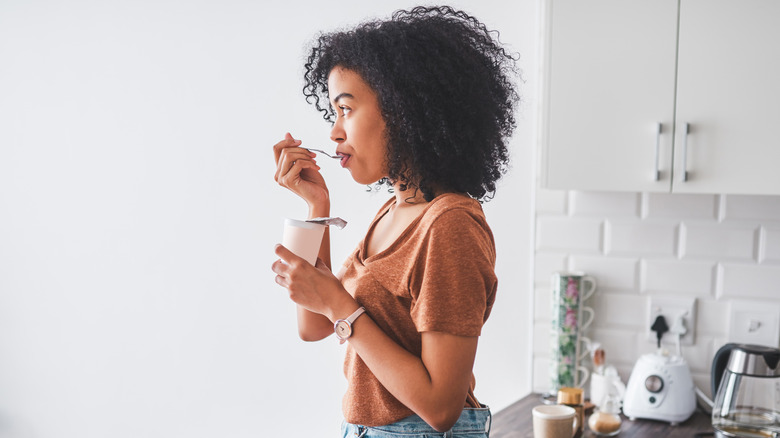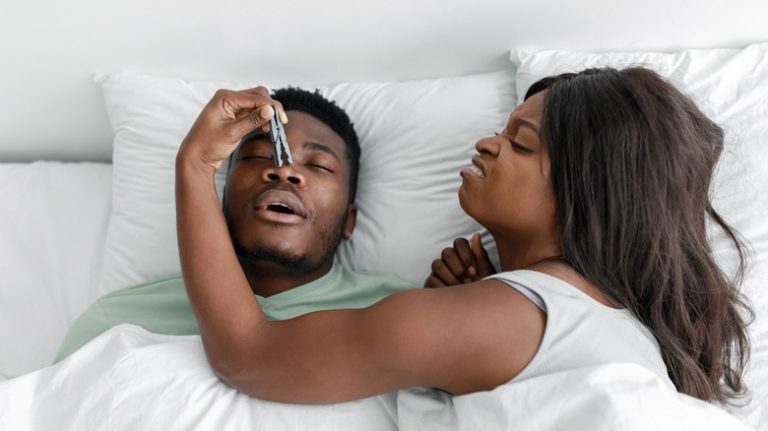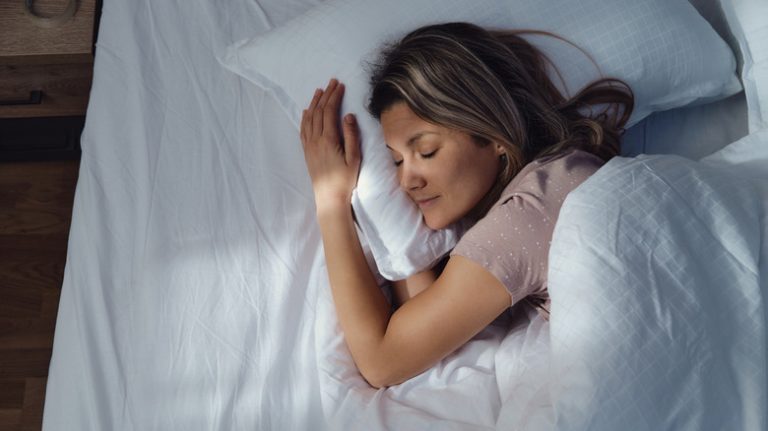Breakfast is the most important meal of the day. This is a saying you probably heard from your parents and other well-meaning adults as a child. And, as you grew up, you learned, with trial and error, the importance of fueling your body with the right foods for a great start to your day.
Did you know, however, that most breakfast foods that healthy people eat can also be great nighttime meals to promote better sleep? Yes, we’re talking bananas, oats, cherries, kiwi fruit, cottage cheese, nuts, toast, eggs, and more. There’s no need to restrict these foods to just your mornings. Per dieticians and sleep experts, they can be great foods to consume at night if you want to fall asleep in record time.
Take whole grains, for instance. A slice or two of whole-wheat toast can aid the release of the hormone serotonin, per Johns Hopkins Medicine, and serotonin is important when it comes to the quality of sleep. Then there is oatmeal. “Grains in oatmeal trigger insulin production much like whole-grain bread. They raise your blood sugar naturally and make you feel sleepy,” shared certified clinical nutritionist, Cynthia Pasquella (via Good Housekeeping). In addition, oats are a rich source of the sleep-promoting hormone melatonin.
Now, let’s take a look at some other breakfast foods that aid sleep.
The importance of fiber and protein for sleep
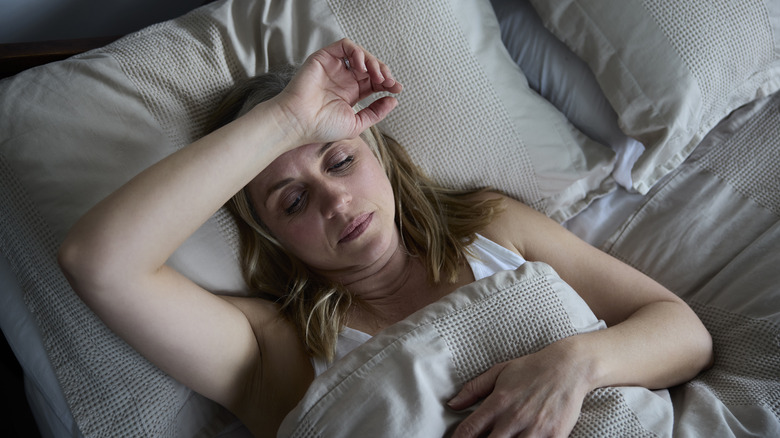
Breakfast plates at hotels and restaurants usually come loaded with fruits. Turns out that the fiber-rich fruits we consume in the mornings can also help us get a good night’s rest. “Fiber helps keep blood sugar steady for longer periods of time, so you can avoid the spikes and crashes that send energy levels on a roller coaster,” wrote registered dietician Jessica Ball for Eating Well. In fact, a 2025 study published in the Annals of Medicine, which looked at improving sleep quality in hemodialysis patients, found a link between dietary fiber and good-quality sleep.
Pears, strawberries, apples, bananas, and cherries are all good sources of fiber. Additionally, fruits like kiwi could boost sleep because of their high serotonin and antioxidant properties, a 2024 study in the Asia Pacific Journal of Clinical Nutrition found. Why not combine these fruits with your oatmeal and have a bowl for dinner?
Speaking of a bowl of oatmeal, nuts could be a great addition, too. In addition to being good sources of fiber and protein, some nuts — like walnuts, chia seeds, and flaxseeds — also contain the omega-3 fatty acid alpha-linolenic acid (ALA). This may help promote better sleep, per a 2024 study in Frontiers in Public Health.
Protein is also important for sleep. We all know how being hungry before bedtime can keep us awake. Eating protein can help keep hunger at bay throughout the evening. While you should probably not load your plate with too much protein, since it will take time to digest it before bedtime, eating a good serving of protein with your evening meal — courtesy of breakfast foods like eggs, yogurt, nuts, and seeds — can help you feel satiated as you fall to sleep.
Calcium, tryptophan, and other nutrients for better sleep
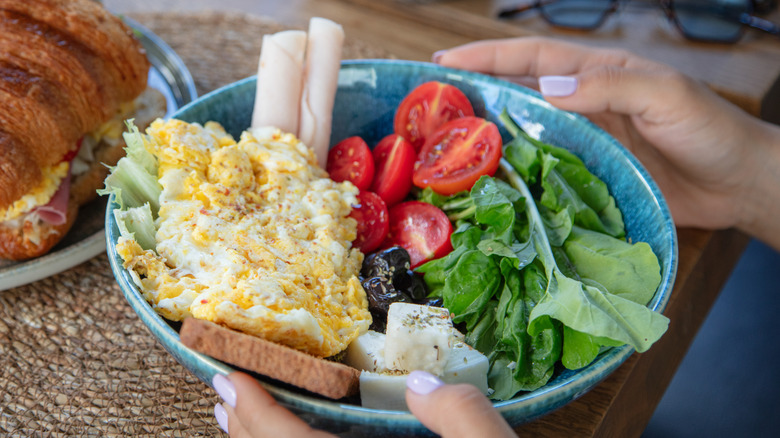
Tryptophan is most often linked with turkey. Remember how drowsy you felt after having turkey dinner last Thanksgiving? Breakfast foods like bananas, oats, and cheese contain tryptophan too, per WebMD.
Cheese, another common breakfast food, is packed full of calcium. “Calcium-rich foods can promote relaxation, so ingesting enough each day is important for more than your bones,” explained Pennsylvania-based sports dietitian, Kelly Jones (via Eating Well).
Fish might not be on everyone’s list of foods to have in the morning but there are some health-conscious folk out there who stock their fridges with canned tuna and don’t mind waking up early in the morning to make themselves some salmon to accompany their toast. A 2024 study published in the Journal of Clinical Sleep Medicine found that the vitamin D content in salmon could be linked to better sleep quality.
Talking about breakfast foods you can have at night, it’s important to also look at the items you shouldn’t be adding to your menu — like caffeine and super sugary foods like cereal. Coffee and caffeinated teas can disrupt your sleep, while sugary cereals can cause your blood sugar levels to spike and crash, which is not ideal if you’re looking to fall asleep quickly. If you’re looking for something to drink, try un-caffeinated herbal tea or chamomile tea.
It might be useful to also be aware that not everyone eats breakfast the same way. Do your research on the breakfast items you’re thinking of introducing to dinner and assess their impact on your sleep.

